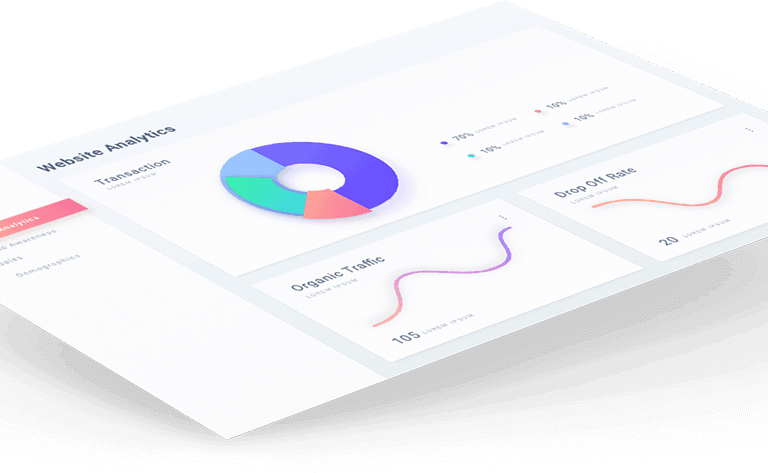In today’s economic landscape, the specter of inflation looms large, posing significant challenges for businesses, especially those managing fleets. As the costs of fuel, maintenance, and vehicle acquisition continue to rise, fleet managers must navigate these turbulent waters with strategic planning and adaptive measures.
In this comprehensive article, we explore the various facets of managing business costs for fleets in the face of inflation and outline practical strategies for sustaining operations while optimizing expenditure.
Comprehensive Cost Analysis
Scrutinize Operating Expenses
Conduct a thorough analysis of all operational expenses, including fuel costs, maintenance and repair expenditures, insurance premiums, and administrative overheads. Identify areas where costs can be trimmed without compromising operational efficiency.
Assess Total Cost of Ownership (TCO)
Evaluate the TCO of each vehicle in your fleet, considering not just the initial purchase price but also long-term costs such as fuel consumption, maintenance, and depreciation. This assessment helps in making informed decisions regarding fleet expansion or contraction.
Fuel Management Optimization
Implement Fuel-Efficient Practices
Educate drivers on fuel-efficient driving techniques such as reducing idling time, maintaining optimal tire pressure, and planning efficient routes. Small adjustments in driving behavior can lead to significant fuel savings over time.
Invest in Alternative Fuel Vehicles
Explore the feasibility of incorporating alternative fuel vehicles into your fleet, such as electric or hybrid vehicles. These vehicles not only reduce fuel costs but also contribute to a more sustainable and environmentally friendly operation.
Proactive Maintenance Strategies
Prioritize Preventive Maintenance
Regularly scheduled maintenance can help identify potential issues before they escalate, reducing the risk of costly repairs and vehicle downtime. Create a comprehensive maintenance schedule and adhere to it rigorously.
Fleet Health Monitoring Systems
Invest in fleet health monitoring systems that provide real-time data on vehicle performance, enabling early detection of maintenance issues. These systems can help prevent costly breakdowns and extend the lifespan of your fleet.
Strategic Asset Utilization
Optimize Fleet Size
“Evaluate the optimal fleet size needed to meet operational demands without excessive surplus. Right-sizing the fleet can help minimize unnecessary acquisition and maintenance costs.”

Implement Asset Sharing
Consider implementing asset-sharing programs where feasible, especially during off-peak seasons or when certain vehicles are underutilized. Sharing assets among different branches or operations can help distribute costs effectively.
Data-Driven Decision Making
Leverage Telematics Solutions
Utilize telematics solutions to gather and analyze data on vehicle performance, driver behaviour, and fuel consumption patterns. Use this data to make informed decisions about route optimization, vehicle allocation, and fuel management.
Implement Cost-Effective Technology
Invest in cost-effective technology solutions such as GPS tracking, route planning software, and predictive analytics tools. These technologies can help streamline operations, reduce fuel consumption, and improve overall fleet efficiency.
Negotiate Favorable Supplier Contracts
Vendor and Supplier Management
Review existing contracts with fuel providers, maintenance vendors, and vehicle suppliers. Negotiate favorable terms, bulk discounts, and long-term agreements to mitigate the impact of rising costs and secure stable pricing.
Explore New Suppliers and Partnerships
Research and explore alternative suppliers and service providers who may offer competitive pricing and value-added services. Building strong partnerships can lead to mutually beneficial cost-saving opportunities.
Driver Training and Accountability
Training on Cost-Effective Driving Practices
Conduct regular training sessions for drivers to educate them on cost-effective driving practices, vehicle maintenance awareness, and fuel-efficient behaviors. Encourage a culture of accountability and responsibility among drivers.
Performance-Based Incentives
Implement performance-based incentives tied to fuel efficiency, vehicle maintenance, and adherence to cost-saving protocols. Rewarding drivers for responsible behaviour can motivate them to contribute actively to cost-saving initiatives.
Adaptive Budget Planning
Flexibility in Budget Allocation
Create a flexible budget that accounts for potential fluctuations in fuel prices and operating costs. Develop contingency plans to address sudden cost increases without jeopardizing the overall financial health of the business.
Long-Term Cost Forecasting
Utilize historical data and market trends to forecast long-term cost increases. Incorporate these forecasts into budget planning to ensure that your financial projections are realistic and sustainable.
Sustainable Growth Strategies
Embrace Sustainable Practices
Integrate sustainable and eco-friendly practices into your fleet management strategies. Explore initiatives such as vehicle electrification, renewable energy adoption, and carbon footprint reduction, which can lead to long-term cost savings and positive environmental impact.
Invest in Employee Development
Foster a culture of continuous learning and development among your workforce. Encourage employees to stay updated on industry trends, technological advancements, and cost-saving practices, empowering them to contribute actively to the organization’s cost management efforts.
Continuous Monitoring and Adaptation
Regular Performance Evaluation
Continuously monitor the performance of cost-saving initiatives and adjust strategies as needed. Regularly assess the impact of implemented measures on overall fleet management costs and make necessary alterations to ensure ongoing effectiveness.
Industry Benchmarking
Compare your cost management strategies with industry benchmarks and best practices. Stay informed about emerging technologies and industry trends that can further optimize your fleet management processes and reduce operational costs.
Conclusion
In the face of inflationary pressures, effective fleet management requires a proactive approach that combines data-driven decision-making, strategic cost analysis, and a commitment to sustainable practices. By implementing a comprehensive framework of cost-saving strategies, businesses can navigate the challenges of rising operational costs while fostering a culture of efficiency, sustainability, and long-term viability. With careful planning, adaptive measures, and a focus on optimizing operational processes, fleet managers can steer their businesses through economic uncertainties and position themselves for sustained success in an ever-evolving market landscape.





